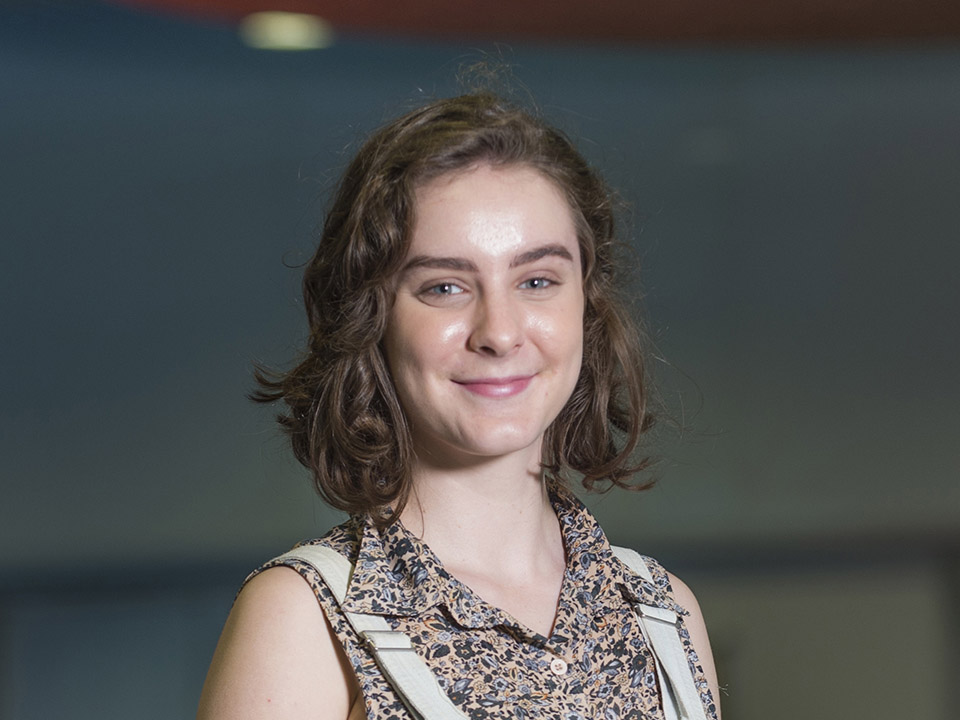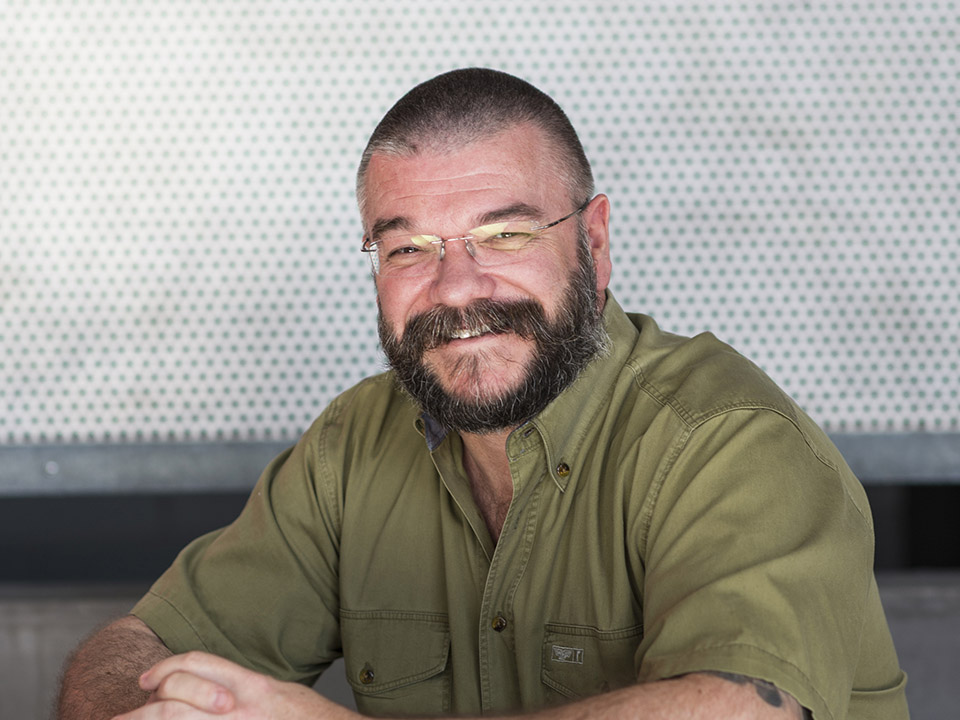Follow your interests
'Mechatronics is a great complement to IT. I chose to do a double degree so I could improve my skills and knowledge in both areas. I have the same contact hours each week as my friends doing single degrees, but I get to study two areas that I love. My degree also allowed me to study for six months at the Technische University Berlin. I studied machine learning and cognitive algorithms from some of the best experts in the world.'
Follow your interests
'Mechatronics is a great complement to IT. I chose to do a double degree so I could improve my skills and knowledge in both areas. I have the same contact hours each week as my friends doing single degrees, but I get to study two areas that I love. My degree also allowed me to study for six months at the Technische University Berlin. I studied machine learning and cognitive algorithms from some of the best experts in the world.'
On-the-job collaboration
'QUT has many industry connections, especially in the tech space. My degree has helped me learn how to work with my peers, through group work and pair projects. I've found this to be invaluable, as a large part of my career now is working in high-performing teams and being able to quickly troubleshoot challenges that come our way.'
Software engineer, Canva
Enjoyable learning experience
'I chose to study computer and software systems because I like coding and what software and applications can achieve for the world. My lecturers, tutors and peers have made my learning experience enjoyable, even through hard assignments and exam times. What pleasantly surprised me was how nice everyone is, especially tutors. This makes them easy to approach and ask questions, plus, some can even become your future coworker. Being able to forge new connections is really meaningful and can help in my future career.'
Computer and software systems student from Malaysia
Networking opportunities and real-world experience
'I chose QUT for its practical approach to engineering education, emphasising hands-on learning and real-world application, which I believe are crucial for engineers. QUT's strong industry connections offered networking opportunities and real-world experience during my studies, which enhanced my understanding of industry and my career prospects. I also chose QUT for its esteemed reputation in engineering and state-of-the-art facilities.'
Computer and software systems student from Taiwan
Real student
Meet our Bachelor of Engineering (Honours) student – Anuka Bulankulame, an international student from Sri Lanka.
International student experience
Meet QUT Bachelor of Information Technology student Yu Koga, an international student from Japan.
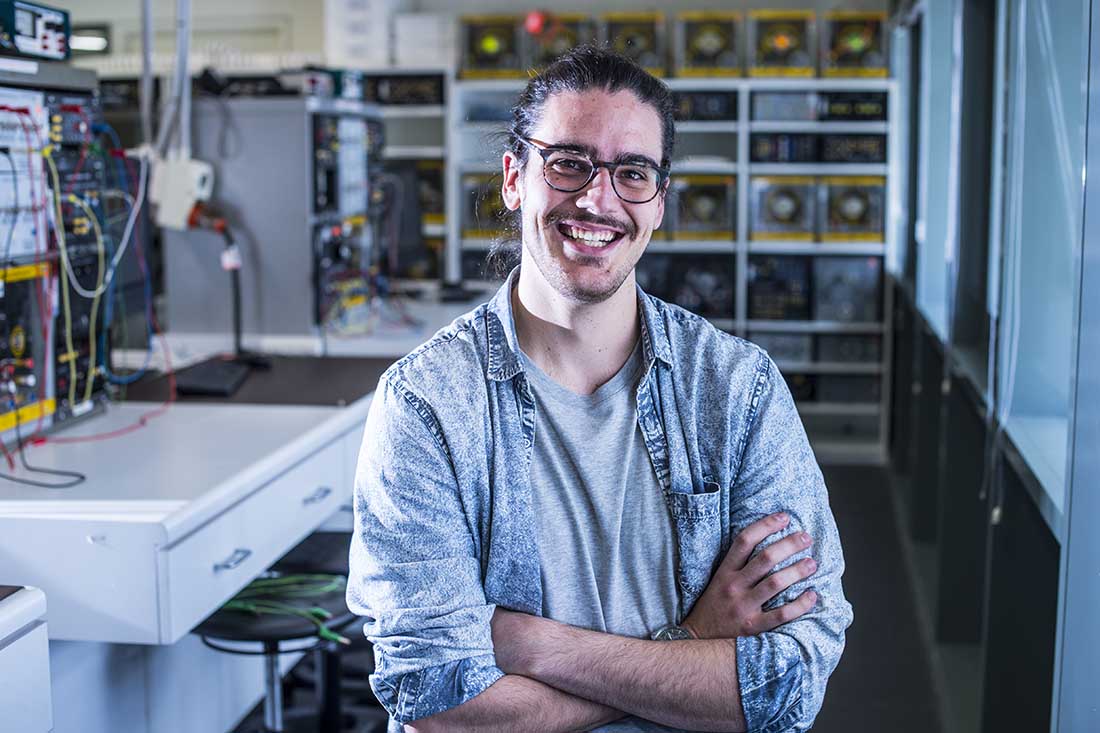


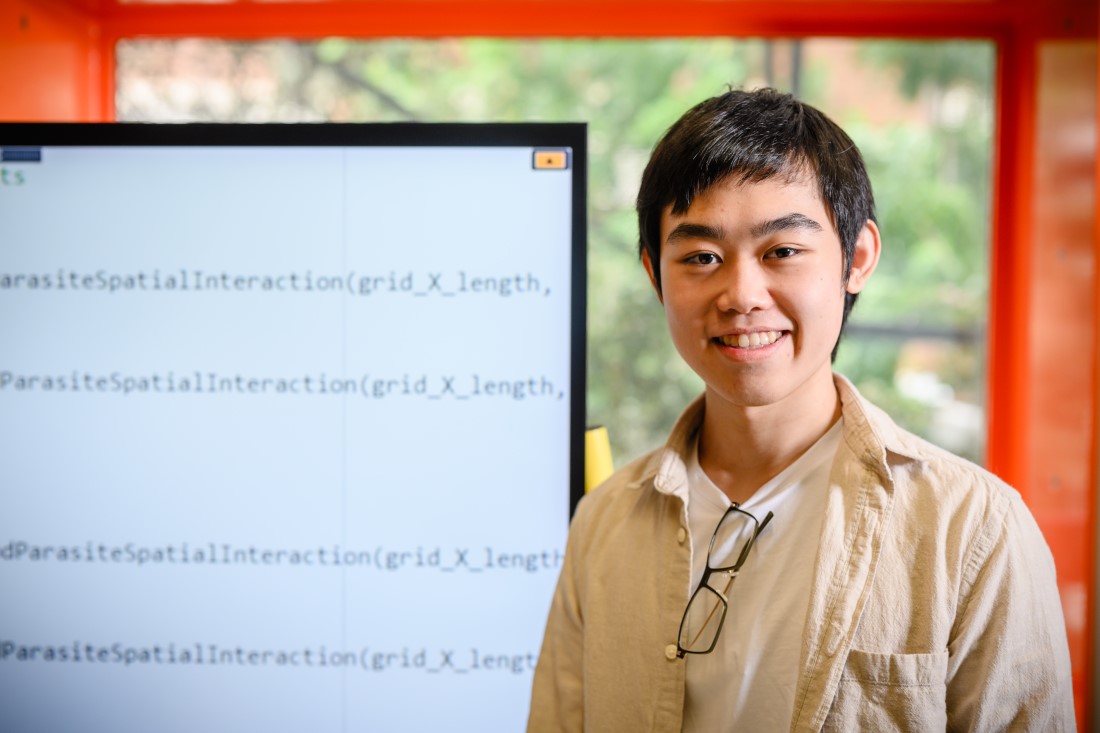


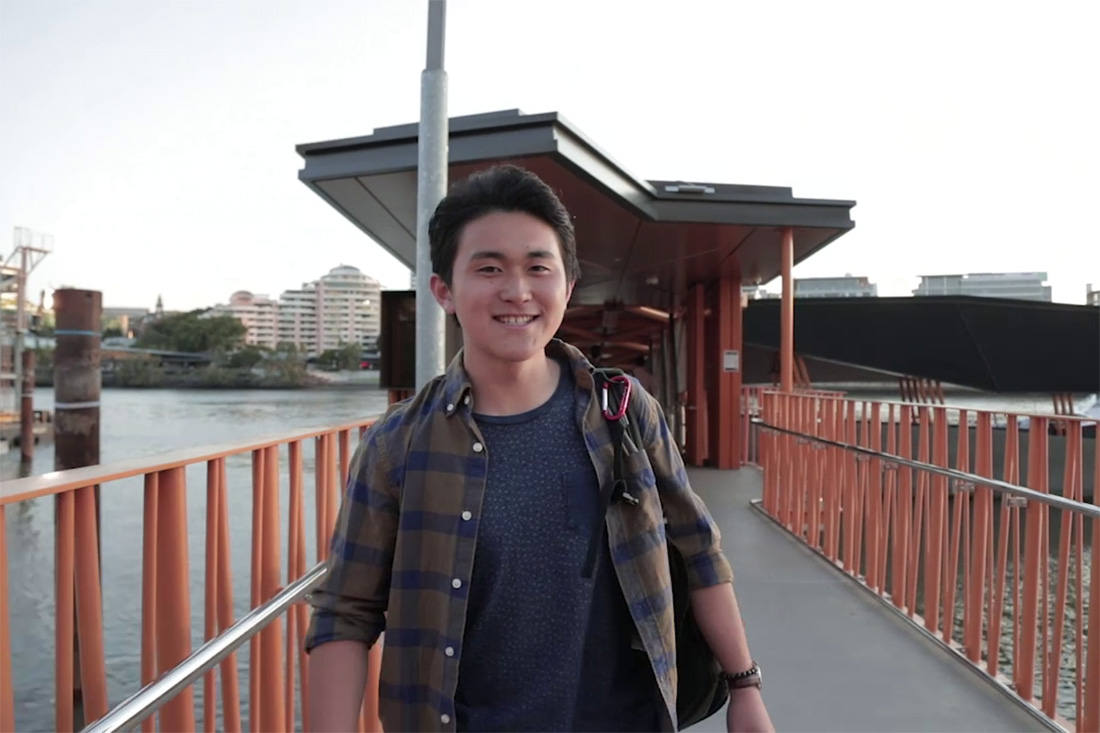
Highlights
- Develop the skills to become an engineer and an information technology professional, working in the development and application of consumer electronics, and computer and electrical systems.
- Complete 2 degrees in 5 years full-time.
- Choose from any engineering major - civil, computer and software systems, electrical, electrical and aerospace, mechatronics, mechanical, medical or chemical and sustainable process engineering.
- QUT's engineering degree includes honours-level content integrated throughout the course.
- Specialise in computer science or information systems, with the Information Technology course.
Highlights
- Develop the skills to become an engineer and an information technology professional, working in the development and application of consumer electronics, and computer and electrical systems.
- Complete 2 degrees in 5 years full-time.
- Choose from any engineering major - chemical and sustainable process, civil, computer and software systems, electrical, electrical and aerospace, electrical and renewable power, mechatronics, mechanical, or medical engineering.
- QUT's engineering degree includes honours-level content integrated throughout the course.
- Specialise in computer science or information systems, with the Information Technology course.
- Graduate eligible for Engineers Australia (EA) and Australian Computer Society (ACS) membership and with a highly regarded and internationally-recognised qualification.
Why choose this course?
As an engineering graduate of this degree, you will be technically competent in the fundamentals of mathematics, science and engineering, with advanced knowledge in at least one specialist area of engineering. The course includes a design stream as well as a capstone project where you will design and build engineering artefact, using your knowledge and skills. Through the course, you will develop an awareness of the important social, environmental and economic impacts of your engineering decisions, and you will be prepared for practice as internationally recognised professional engineers.
As an information technology graduate of this degree, you will be equipped to build and apply creative, innovative IT solutions across diverse industries. A hands-on, real-world based curriculum gives you the opportunity to explore a wide range of areas within the two strands of this degree, and gain deep understanding within your chosen area of study from either information systems or computer science. You learn to harness your creativity and people skills to maximise the impact of your technical know-how in the IT marketplace. It positions you for a challenging and rewarding career within the global economy.
Explore this course
Combine valuable skills and knowledge with the Bachelor of Engineering (Honours)/Bachelor of Information Technology degree. You will complete two degrees in five years full-time.
The majors available in the Bachelor of Engineering (Honours) include:
- chemical and sustainable process
- civil
- computer and software systems
- electrical
- electrical and aerospace
- electrical and renewable power
- mechatronics
- mechanical
- medical
- chemical and sustainable process.
You can choose from computer science or information systems in the Bachelor of Information Technology.
Our engineering courses, whether a single or double degree, include honours-level content integrated throughout the course. A bachelor honours degree is a higher-level qualification than a bachelor degree, and along with the advanced knowledge and skills, it will benefit you in your professional career or future research and study. The duration of the degree remains unchanged: a single engineering honours degree is a four-year program, and a double degree is five years.
Your engineering degree features common units in the first year that combine broad foundation principles with a wide range of major choices, giving you flexibility and options before you choose your career specialisation.
Work Integrated Learning
Work Integrated Learning (WIL)is embedded in the curriculum and it is a core component for all engineering students. WIL allows you to graduate with a portfolio of professional skills that provides evidence of your professional competencies.
You are required to undertake60 days(equivalent to 450 hours) of approved work experience in the engineering environment as part of your work integrated learning.
Careers and outcomes
This double degree offers you a wide range of career opportunities.
Graduates can work as professional engineers in a variety of discipline areas. Depending on your area of engineering specialisation, you could work with construction companies, environmental specialists, computer manufacturers, communications and digital signal processing products manufacturers, cable and network equipment manufacturers, defence agencies, electricity utilities, mining industry, telecommunications companies, automated systems and robotics, Civil Aviation Safety Authority, or power generation and supply industry.
Many graduates find employment in areas such as communications, railways, electricity supply, hospitals, transport and in organisations that are using electronics, electronic systems, computers and microprocessors to monitor, control, communicate and optimise processes and production, in areas such as mining and aerospace.
Careers and outcomes
This double degree offers you a wide range of career opportunities.
Graduates can work as professional engineers in a variety of discipline areas. Depending on your area of engineering specialisation, you could work with construction companies, environmental specialists, computer manufacturers, communications and digital signal processing product manufacturers, cable and network equipment manufacturers, defence agencies, electricity utilities, mining industry, telecommunications companies, automated systems and robotics, or the power generation and supply industry.
Many graduates find employment in areas such as communications, railways, electricity supply, hospitals, transport and in organisations that are using electronics, electronic systems, computers and microprocessors to monitor, control, communicate and optimise processes and production, in areas such as mining and aerospace.
Professional recognition
All graduates are eligible for an Engineers Australia (EA) membership. EA is a signatory to the Washington Accord, which permits graduates to work in various countries across the world. This course is recognised internationally in the engineering profession, giving QUT graduates more career opportunities overseas.
And the following component of the course is Australian Computer Society (ACS) accreditated, giving graduates eligibility for ACS membership, recognition by ACS for certification and migration skills assessment, and international recognition by signatories of theSeoul Accord,
- Bachelor of Information Technology
- Computer and Software Systems Major in Bachelor of Engineering
Possible careers
- Aerospace avionics engineer
- Bioengineer
- Biomechanical engineer
- Biomedical engineer
- Civil engineer
- Computer systems engineer
- Electrical engineer
- Engineer
- Environmental engineer
- Information security specialist
- Mechanical engineer
- Medical engineer
- Software engineer
- Transport engineering specialist
Students are required to complete a total of 480 credit points as outlined below. You will study Engineering and IT units in the first four years of the double degree, and for the remainder of the course will focus on Engineering studies.
Engineering (Honours)
The Bachelor of Engineering (Hons) consists of
- Seven (7) core engineering units (84 cp) including four units in first year (48 cp) +research methods and project (36 cp)
- Seventeen (17) units in one discipline/major (204 cps)
- Five (5) engineering aligned units (60 cps), contribute to the achievement of theEngineers Australia Stage 1 Competency Standard for Professional Engineer, which also contribute to the IT degree.1
1Five (5) units contribute to both the engineering degree (to align to Engineers Australia Stage 1 Competency for Professional Engineer) and the IT degree.
Information Technology
The Bachelor of Information Technology consists of
a) Eight (8) Core units (96cp). Five (5) core units of the IT degree also contribute to the engineering degree.1
b) Seven (7) Major units (84 cp) which may be selected from one of the following study areas:
- Computer Science
- Information Systems
c) Two (2) QUT You units (12 cp)
Students are required to complete a total of 480 credit points as outlined below. You will study Engineering and IT units in the first four years of the double degree, and for the remainder of the course will focus on Engineering studies.
Engineering (Honours)
The Bachelor of Engineering (Hons) consists of
- Seven (7) core engineering units (84 cp) including four units in first year (48 cp) +research methods and project (36 cp)
- Seventeen (17) units in one discipline/major (204 cps)
- Five (5) engineering aligned units (60 cps), contribute to the achievement of theEngineers Australia Stage 1 Competency Standard for Professional Engineer, which also contribute to the IT degree.1
1Five (5) units contribute to both the engineering degree (to align to Engineers Australia Stage 1 Competency for Professional Engineer) and the IT degree.
Information Technology
The Bachelor of Information Technology consists of
a) Eight (8) Core units (96cp). Five (5) core units of the IT degree also contribute to the engineering degree.1
b) Seven (7) Major units (84 cp) which may be selected from one of the following study areas:
- Computer Science
- Information Systems
c) Two (2) QUT You units (12 cp)
- ATAR/selection rank threshold
- 80.00
These thresholds are the lowest adjusted scores to which QUT made an offer in Semester 1, 2024.
Don't have a ATAR/selection rank?
- Course code
- SE60
- QTAC code
- 419512
- CRICOS code
- 084923F
-
- Gardens Point
-
- Gardens Point
- 5 years full-time
- 9 years part-time
- 5 years full-time
- February and July
- February and July
Assumed knowledge
Before you start this course, we assume you have sound knowledge of the subject/s listed below. If you don't have the subject knowledge, you can still apply for the course but we strongly encourage you to undertake bridging studies to gain the knowledge:
- English, or Literature, or English and Literature Extension, or English as an Additional Language (Units 3 & 4, C)
- Mathematical Methods, or Specialist Mathematics (Units 3 & 4, C)
Year 12 early offer scheme
If you're a current Queensland Year 12 student, you may be eligible to receive an offer for this course on the last day of Queensland Year 12, before receiving your ATAR or selection rank
Offer guarantee
If you achieve an ATAR or selection rank of 82.00 or higher (including any adjustments) and satisfy all other admission requirements, you are guaranteed an offer for this course.
VET guarantee
If you have completed an AQF diploma or higher, and satisfy all other admission requirements, you are guaranteed an offer for this course.
Advanced standing
If you have prior studies or work experience, you may be eligible for advanced standing (credit). You can apply for advanced standing once you've been accepted to QUT. If you're in your first semester of study, you must apply for advanced standing within 10 days of receiving your offer.
Deferment
You can defer your offer and postpone the start of your course for one year.
More about deferring your offer
Adjustments to your ATAR/selection rank
Any adjustments you receive to your ATAR or selection rank will be applied to this course.
Find out if you’re eligible for an adjustment to your ATAR or selection rank
Offers we made to school leavers in Semester 1, 2024
The figures listed in the tables below reflect the offers that were made to recent ATAR students. The entry thresholds box at the top of this page shows the lowest adjusted ATAR/selection rank required to receive an offer for all applicants for the most recent January QTAC offer round.
| Excluding adjustments | Including adjustments | |
|---|---|---|
| Highest ATAR/selection rank to receive an offer |
Selection rank99.00
|
Selection rank99.95
|
| Median ATAR/selection rank to receive an offer |
Selection rank82.30
|
Selection rank87.50
|
| Lowest ATAR/selection rank to receive an offer |
Selection rank72.65
|
Selection rank80.45
|
You can find out more about your fellow students’ backgrounds with this course’sstudent profile.
Other admission options
If you are of Aboriginal or Torres Strait Islander descent, you may be eligible for admission through ourCentralised Assessment Selection Process (CASP).
I completed my studies outside of Australia
Select the country where you completed your studies to see a guide to the grades you need to apply for this course.
If your country or qualification is not listed, you can still apply for this course and we will assess your eligibility.
Assumed knowledge
- Mathematical Methods, or Specialist Mathematics (Units 3 & 4, C)
.
I completed secondary school in Australia
Assumed knowledge
Before you start this course we assume you have sound knowledge in these areas:
- Mathematical Methods, or Specialist Mathematics (Units 3 & 4, C)
- ATAR/selection rank
- 80.00
Offer guarantee
If you completed secondary school in Australia and achieve an ATAR/selection rank of 82.00 or higher (including any adjustments) and satisfy all other admission requirements, you are guaranteed an offer for this course.
VET guarantee
If you have completed an AQF diploma or higher, and satisfy all other admission requirements, you are guaranteed an offer for this course.
Minimum English language requirements
Select the country where you completed your studies to see a guide on meeting QUT’s English language requirements.
Your scores and prior qualifications in English-speaking countries are considered. Approved English-speaking countries are Australia, Canada, England, Ireland, New Zealand, Scotland, United States of America and Wales.
If your country or qualification is not listed, you can still apply for this course and we will assess your eligibility.
We accept English language proficiency scores from the following tests undertaken in a secure test centre. Tests must be taken no more than 2 years prior to the QUT course commencement.
| English Test | Overall | Listening | Reading | Writing | Speaking |
|---|---|---|---|---|---|
| PTE Academic | 58 | 50 | 50 | 50 | 50 |
| Cambridge English Score You must share your results with QUT through the Candidate Results Online website. |
176 | 169 | 169 | 169 | 169 |
| IELTS Academic / IELTS One Skills Retake | 6.5 | 6 | 6 | 6 | 6 |
| TOEFL iBT / Paper | 79 | 16 | 16 | 21 | 18 |
Don't have the English language score you need? We can help!
We offerEnglish language programsto improve your English and help you gain entry to this course.
When you apply for this course, we will recommend which English course you should enrol in.
Your actual fees may vary depending on which units you choose. We review fees annually, and they may be subject to increases.
2025 fees
2025: CSP fees available from September
2025 fees
2025: $43,100 per year full-time (96 credit points)
2024 fees
2024: CSP $8,300 per year full-time (96 credit points)
2024 fees
2024: $40,400 per year full-time (96 credit points)
Student services and amenities fees
You may need to pay student services and amenities (SA) fees as part of your course costs.
HECS-HELP: loans to help you pay for your course fees
You may not have to pay anything upfront if you're eligible for a HECS-HELP loan.
You can apply for scholarships to help you with study and living costs.
QUT Excellence Scholarship (Academic)
QUT's premier offering for students with outstanding academic achievement.
- Scholarship eligibility
- Academic performance
Women in Engineering Scholarship
A scholarship for future female undergraduate students who want to study engineering.
- Scholarship eligibility
- Women
Equity scholarships scheme
- Scholarship eligibility
- Struggling financially
QUT Elite Sport Scholarship
QUT's premier offering for students with outstanding sporting achievement.
- Scholarship eligibility
- Sporting excellence
International Merit Scholarship
- Scholarship eligibility
- Academic performance
Westpac Young Technologists Scholarship
- Scholarship eligibility
- Academic performance
QUT Budding Entrepreneur Scholarship
- Scholarship eligibility
QUT Real World International Scholarship
A scholarship to cover tuition fees, with eligibility based on your prior academic achievements.
- Scholarship eligibility
- Academic performance
You may also be eligible for
Keep up to date
QUT courses for you
Like to save your courses?
Please enter your first name and email so we can save your courses for you
